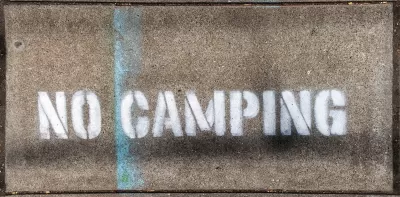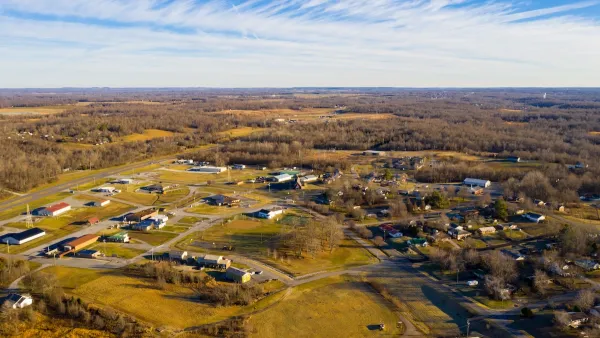Cities have access to tools that can more effectively capture information about unhoused residents and pinpoint what types of resources are needed and where.

The number of people experiencing homelessness is vastly undercounted by the official federal count, writes Tamera Kohler in an opinion piece for Governing — but cities can do better.
Kohler argues that there are existing tools and methods that can help cities more accurately understand the scale of the homelessness crisis. “Better yet, they can allow cities to identify every unhoused person by name, track their personal history with homelessness, and address their specific housing and health needs.”
According to Kohler, “The shortcomings of the point-in-time count are numerous; it simply can't encapsulate the complex and varied forces behind homelessness.” Unhoused people may not be sleeping outdoors every night, and punitive laws can push people to less visible places. In some cases, lack of access to certain properties (for example, San Diego advocates only started counting people on California Department of Transportation property in 2023) can make a major difference in the count. The challenges are often exacerbated in rural areas, where dispersed geography contributes to difficulty in accurately identifying unhoused residents.
Kohler recommends homeless management information systems (HMIS) as one tool for tracking people’s needs and interactions with local services. “An even more powerful way of using HMIS technology is creating by-name data — comprehensive data sets updated in real time that record each person's name, needs, circumstances and history with homelessness. By-name data empowers communities to coordinate personalized care and resources for individuals.”
FULL STORY: We Need Better Data to Combat Homelessness

Planetizen Federal Action Tracker
A weekly monitor of how Trump’s orders and actions are impacting planners and planning in America.

Map: Where Senate Republicans Want to Sell Your Public Lands
For public land advocates, the Senate Republicans’ proposal to sell millions of acres of public land in the West is “the biggest fight of their careers.”

Restaurant Patios Were a Pandemic Win — Why Were They so Hard to Keep?
Social distancing requirements and changes in travel patterns prompted cities to pilot new uses for street and sidewalk space. Then it got complicated.

San Francisco Suspends Traffic Calming Amidst Record Deaths
Citing “a challenging fiscal landscape,” the city will cease the program on the heels of 42 traffic deaths, including 24 pedestrians.

California Homeless Arrests, Citations Spike After Ruling
An investigation reveals that anti-homeless actions increased up to 500% after Grants Pass v. Johnson — even in cities claiming no policy change.

Albuquerque Route 66 Motels Become Affordable Housing
A $4 million city fund is incentivizing developers to breathe new life into derelict midcentury motels.
Urban Design for Planners 1: Software Tools
This six-course series explores essential urban design concepts using open source software and equips planners with the tools they need to participate fully in the urban design process.
Planning for Universal Design
Learn the tools for implementing Universal Design in planning regulations.
Heyer Gruel & Associates PA
JM Goldson LLC
Custer County Colorado
City of Camden Redevelopment Agency
City of Astoria
Transportation Research & Education Center (TREC) at Portland State University
Camden Redevelopment Agency
City of Claremont
Municipality of Princeton (NJ)





























